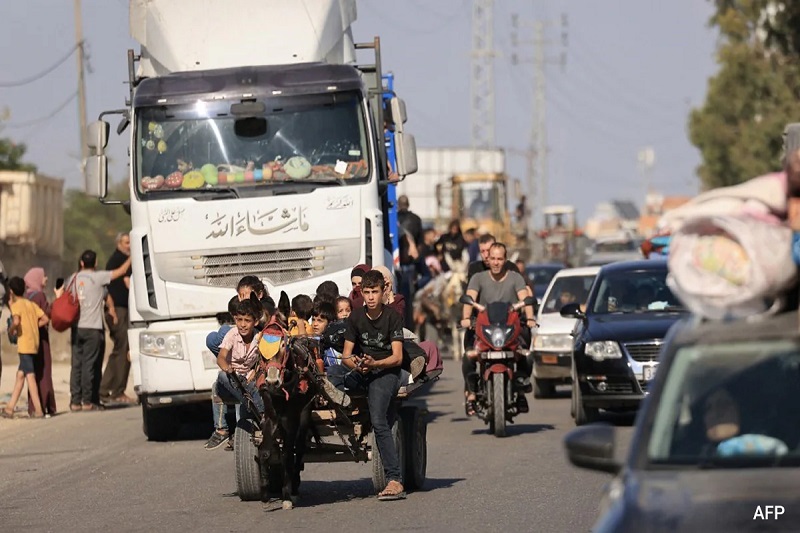Egypt’s President Rejects Gaza Refugees
Egypt’s President Abdel Fattah al-Sisi announced on Wednesday that he would not permit a large influx of refugees from Gaza, fearing it could set a precedent for the displacement of Palestinians from the West Bank into Jordan. He attributed this stance to Israeli air strikes on the Rafah crossing between Gaza and Egypt, hindering aid delivery to Gaza’s 2.4 million residents.
Risks to Palestinian Statehood
President Sisi expressed concern that a significant influx of Gazans into Egypt would risk replicating the displacement of Palestinians from the West Bank into Jordan. This, he argued, would undermine the establishment of a Palestinian state, as the land would remain but the people would be displaced.
Recent Conflict and Humanitarian Crisis
The announcement came amid severe Israeli bombardment of Gaza in retaliation for a cross-border strike by Hamas, resulting in at least 1,400 casualties, primarily civilians. The humanitarian situation in Gaza, including shortages of essential resources like food, fuel, electricity, and water, has further deteriorated.
Rafah Crossing as the Only Entry
Egypt’s Rafah border crossing with Gaza is the sole entry point not controlled by Israel, leading to mounting pressure for humanitarian aid to pass through this route. President Sisi clarified that the crossing was not closed but faced challenges due to repeated Israeli bombings on the Palestinian side.
Efforts for Humanitarian Access
Egypt and Germany, through discussions with Chancellor Olaf Scholz, are working together to expedite humanitarian access to Gaza. They emphasized the risk of regional spillover due to the conflict, leading to a call for international intervention and a halt to the dangerous military escalation.
Warning Against Regional Escalation
President Sisi and Chancellor Scholz issued warnings about potential regional spillovers. Scholz cautioned Hezbollah and Iran against intervening in the conflict, emphasizing Germany’s commitment to preventing a broader conflagration in the Middle East.
Preserving Peace Accords
President Sisi reminded us that Egypt was the first Arab state to establish diplomatic relations with Israel in 1979 after the Camp David peace accords. He expressed concern that a major influx of Gazans into the Sinai Peninsula could risk turning it into a base for terrorist operations against Israel, potentially jeopardizing peace and security in the region.
Repercussions and Historical Perspective
The potential exodus of Gazans to Egypt has been described as a “second Nakba” by Palestinian President Mahmud Abbas, referring to the first Nakba in 1948, when hundreds of thousands of Palestinians were displaced during the birth of Israel.
Keep Reading
Egypt’s Position on Responsibilities
Egypt has consistently refused to accept Israel’s responsibilities as an occupying force, including the safety of civilians. This aligns with Egypt’s stance that Israel should not be recognized as a legitimate state in the occupied territories.
Alternative Suggestions for Gazans
In response to concerns that Sinai is a sparsely populated desert, President Sisi suggested that Gazans seek safety in Israel’s Negev Desert and be returned when Israel completes its operations against armed groups in Gaza.

